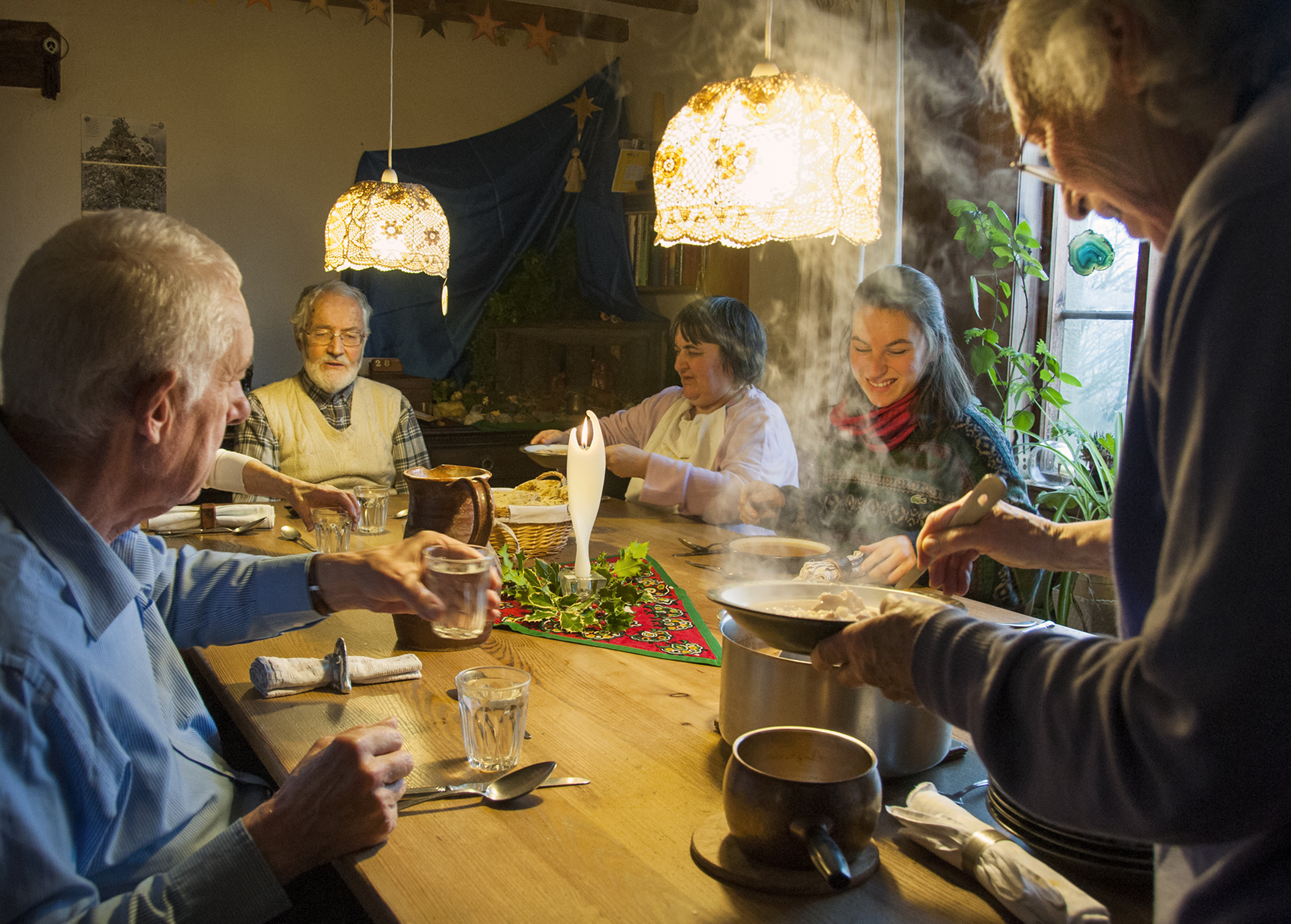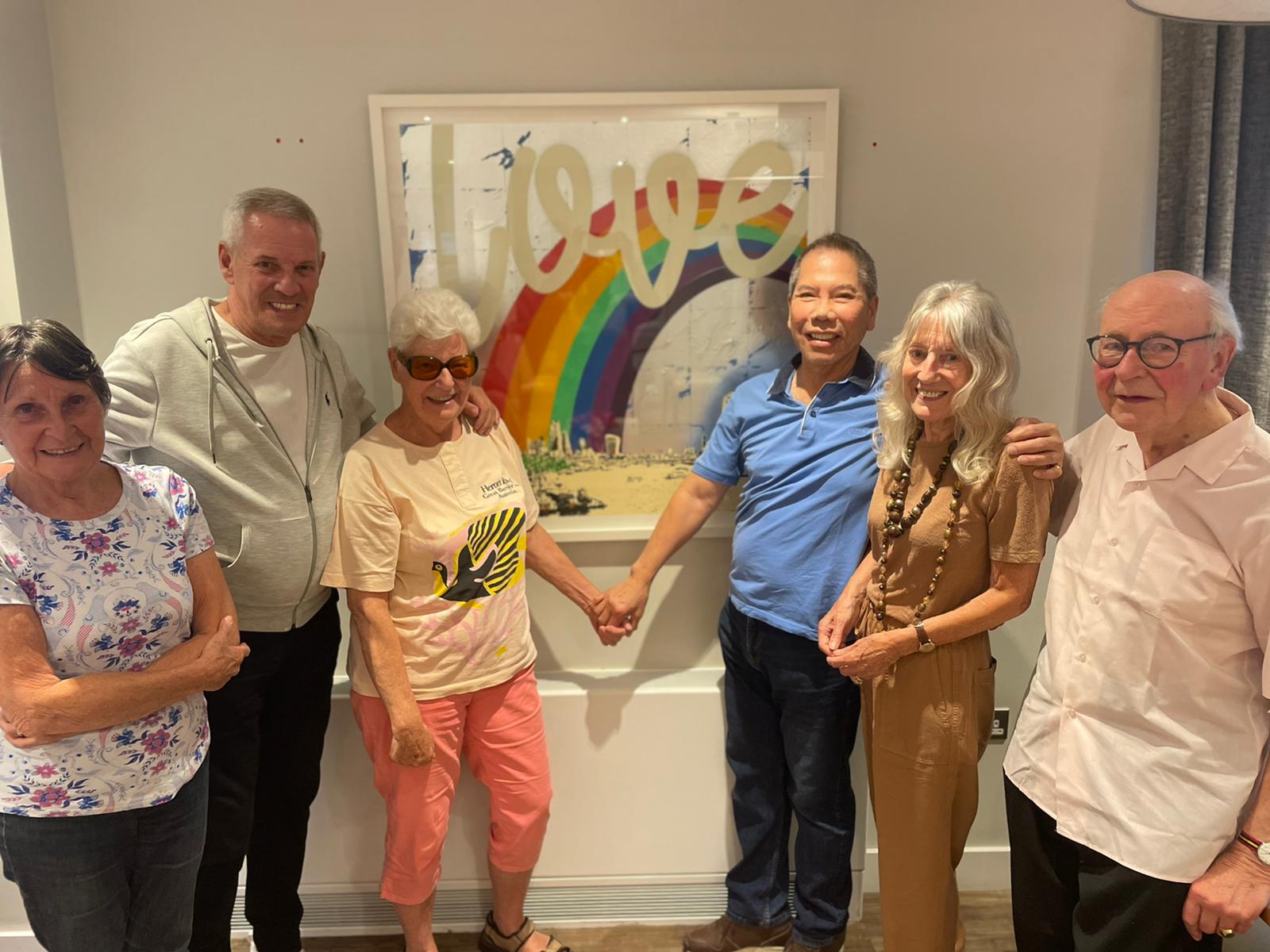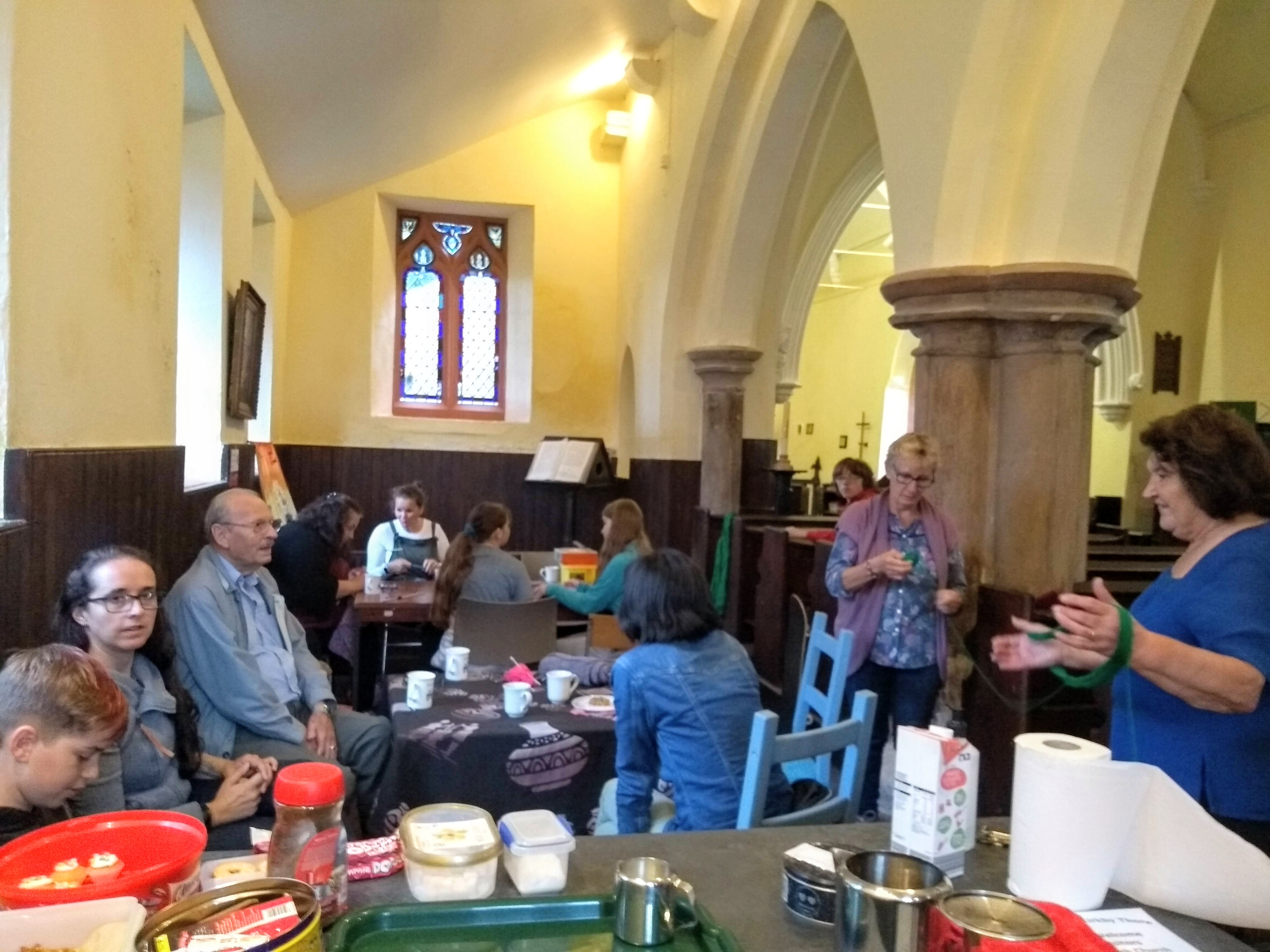Woodside Care Village
Visiting Woodside Care Village, a purpose-built and designed care home for people with dementia, mobility needs, and hearing loss, was a fantastic opportunity to see the best of community support in a residential setting. The residents have everything they need on their doorsteps in the ‘village’. There’s a hair salon, spa, cinema, shop, and laundrette. The houses feel homely because they are. Everyone lives in a residential household, each of which has a distinctive décor and spirit. When you put the right environment around people living in institutional settings, they can thrive in community.
Esk Valley Camphill Community
As a Commission, we’ve been thinking carefully about the purpose of care and support. Visiting Esk Valley Camphill Community, we saw a group of adults of different ages being supported to live together within a Shared Lives scheme. The magic ingredient was shared participation. Residents live alongside each other in a community house, cooking and eating together, experiencing a sense of mutual involvement in, and ownership of, their shared space. Work is about bringing the best out of people and watching them thrive. Everyone in the community at Esk Valley has the opportunity to pursue a vocation to the best of their ability: from working on the land - tending chickens, growing vegetables – to stacking the shelves in the health shop or baking bread, everyone is equipped to share their skills and gifts.
Methodist Homes Association Moor Allerton
When we asked people what they thought a reimagined vision of care and support should be like, they often mentioned the importance of spiritual care. At MHA Moor Allerton, we saw for ourselves the difference it makes to residents when their spiritual and emotional care are treated seriously. Visiting with the Chaplain, we met residents who were able to attend church services on-site, or to have their priest come directly to them. Pastoral support lay at the heart of what we saw. When people had found things too much living in their home, MHA Moor Allerton was seen by residents as a home where they could feel safe, enjoy social activities, but also maintain their independence by living in their own flat.
Tonic @ Bankhouse
Society has changed enormously in recent years and as a Commission we were tasked with thinking about the various ways in which some people might find it harder than others to draw on care and support. Tonic @ Bankhouse is a ground-breaking residential setting: the UK’s first LGBT+ affirming retirement community. On our visit, we heard that care and support is about understanding what people need, their background and experiences, helping people to embrace their identity and feel affirmed by those around them. This is especially important for older LGBT+ people, who are statistically more likely to be single, live alone, and may be reluctant to come out to their care staff. Care and support should enable everyone to feel safe and secure in their environment.
Renew Wellbeing Café, Kirkby Thore
The church is at its best when the doors are open, inviting people to enjoy a place of sanctuary, laughter, and deep relationship-building. Visiting Renew Wellbeing Café, a church-led café in Kirkby Thore, Cumbria, we saw first-hand that a simple concept – a midweek coffee afternoon in the church building – can make a real difference for volunteers and guests alike. Indeed, the distinction between volunteers and guests was deliberately unclear, with everyone mucking in, enjoying refreshments, playing games, but also having a quiet place to sit and pray or reflect. Guests reported especially appreciating the continuity and consistency of the weekly sessions, which start and end with the same reflective prayer – for those who wished to take part – followed by a range of activities. Everyone is known, welcomed, and cherished.



